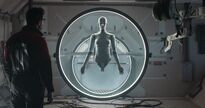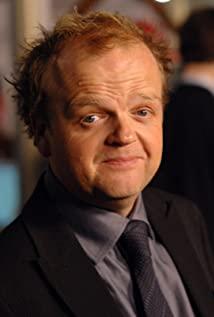George and his wife were in a car accident and his wife died.
In an isolated research institution, George developed three generations of robots, the ultimate goal of which is to use the consciousness of his deceased wife to enter a perfect human robot to complete the return of "wife".
There have been some twists and turns in the process. The second-generation robot J2 is more intelligent than J1, but it has incidentally produced some human emotions that should not appear in robots. The J3 robot produced a very human-like perceptual way of thinking, and began to think deeply about its own existence.
However, just when George thought he was done, he suddenly found some physical and logical confusion in his environment.
It turned out that it was not his wife who died in the car accident, but George himself. His wife kept George's consciousness digitally, allowing George's consciousness to continue to exist in a virtual digital environment for a period of time to delay the grief of losing his lover. Eventually the wife relieved her grief, ending George's consciousness in the virtual space.
In the absence of any hints in the previous plot, the reversal of the ending feels a little abrupt, but it can also be explained that the digital virtual space where George's consciousness is located is perfect, except that the robot that is about to break in at the end disappears inexplicably. At this point, there are almost no logical bugs in the virtual environment.
The emotion of J2 robot is also a bright spot. In the case of having some human thinking ability, J2 also has some human-like emotions, such as jealousy of the soon-to-be-formed J3, and seeing J3 and George happily together Feeling lost, he threw himself into the lake when he lost his legs and felt abandoned.
The final molding procedure of J3 feels a bit imitating Westworld, but the final product still has a certain gap from the level of receptionists in Westworld, which is a little regrettable.
The trend of technological development can make the artificial intelligence of robots more and more developed. It is no longer difficult to pass the Turing test. When humans create robots, they will give robots more human-like thinking and emotions. Functions will also gradually move from labor replacement to emotional replacement, to make up for the emotional alienation between people caused by the increasingly meticulous division of social labor.
But human beings are developing the thinking ability of robots and at the same time trying to limit the humanization of their way of thinking, such as the three laws or something. According to the current speed of technological development, it is not out of reach for robots to have autonomous consciousness, and even the era of robots creating robots by themselves will not be too far away. Before that, human beings should figure out how to coexist with species more powerful than themselves, or how to Let the robot agree with the necessity of human existence.
With the thinking ability of future robots, once they want to eliminate humans, the efficiency will be so high that humans cannot imagine.
Therefore, while developing technology, we should also understand ethical logic.
View more about Archive reviews











